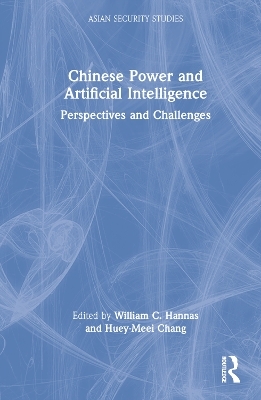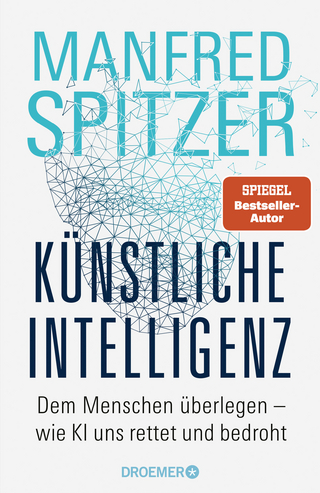
Chinese Power and Artificial Intelligence
Routledge (Verlag)
978-1-032-08110-6 (ISBN)
China’s rise as an AI power is an event of importance to the world and a potential challenge to liberal democracies. Filling a gap in the literature, this volume is fully documented, data-driven, and presented in a scholarly format suitable for citation and for supporting downstream research, while also remaining accessible to laypersons. It brings together 15 recognized international experts to present a full treatment of Chinese artificial intelligence. The volume contains chapters on state, commercial, and foreign sources of China’s AI power; China’s AI talent, scholarship, and global standing; the impact of AI on China’s development of cutting-edge disciplines; China’s use of AI in military, cyber, and surveillance applications; AI safety, threat mitigation, and the technology’s likely trajectory. The book ends with recommendations drawn from the authors’ interactions with policymakers and specialists worldwide, aimed at encouraging AI’s healthy development in China and preparing the rest of the world to engage with it.
This book will be of much interest to students of Chinese politics, science and technology studies, security studies and international relations.
William C. Hannas is a Georgetown professor and CSET’s lead analyst. Prior to this, he was a member of the Central Intelligence Agency’s Senior Intelligence Service and a three-time recipient of its McCone Award. He is the lead author of Chinese Industrial Espionage (2013) and co-editor of China’s Quest for Foreign Technology (2020). Huey-Meei Chang is a Research Analyst at Georgetown University and is CSET’s senior China S&T analyst. She began her career as a data analyst at Taiwan’s Academia Sinica, Institute of Biomedical Sciences and taught document analysis for more than a decade to researchers at U.S. Government agencies.
Part I: Foundations of Chinese AI power 1. State plans, research, and funding 2. China’s AI companies: hybrid players 3. Foreign support, alliances, and technology transfer Part II: China and the world 4. China’s quest for AI talent 5. Academic literature: quantitative and qualitative analyses 6. The balance sheet: China’s AI advantages and challenges Part III: Impact on cutting-edge disciplines 7. Chinese AI and neuroscience 8. Chinese AI and biology 9. China at the Nexus of AI and Quantum Computing Part IV: AI in the shadows 10. AI in the Chinese military 11. Cyber and influence operations 12. AI and the surveillance statePart V: AI hazards and safety 13. Future paths and challenges 14. AI safeguards: views inside and outside China 15. Measuring risk and monitoring development
| Erscheinungsdatum | 11.07.2022 |
|---|---|
| Reihe/Serie | Asian Security Studies |
| Zusatzinfo | 22 Tables, black and white; 21 Line drawings, black and white; 21 Illustrations, black and white |
| Verlagsort | London |
| Sprache | englisch |
| Maße | 156 x 234 mm |
| Gewicht | 453 g |
| Themenwelt | Informatik ► Theorie / Studium ► Künstliche Intelligenz / Robotik |
| Sozialwissenschaften ► Politik / Verwaltung ► Europäische / Internationale Politik | |
| ISBN-10 | 1-032-08110-4 / 1032081104 |
| ISBN-13 | 978-1-032-08110-6 / 9781032081106 |
| Zustand | Neuware |
| Haben Sie eine Frage zum Produkt? |
aus dem Bereich


